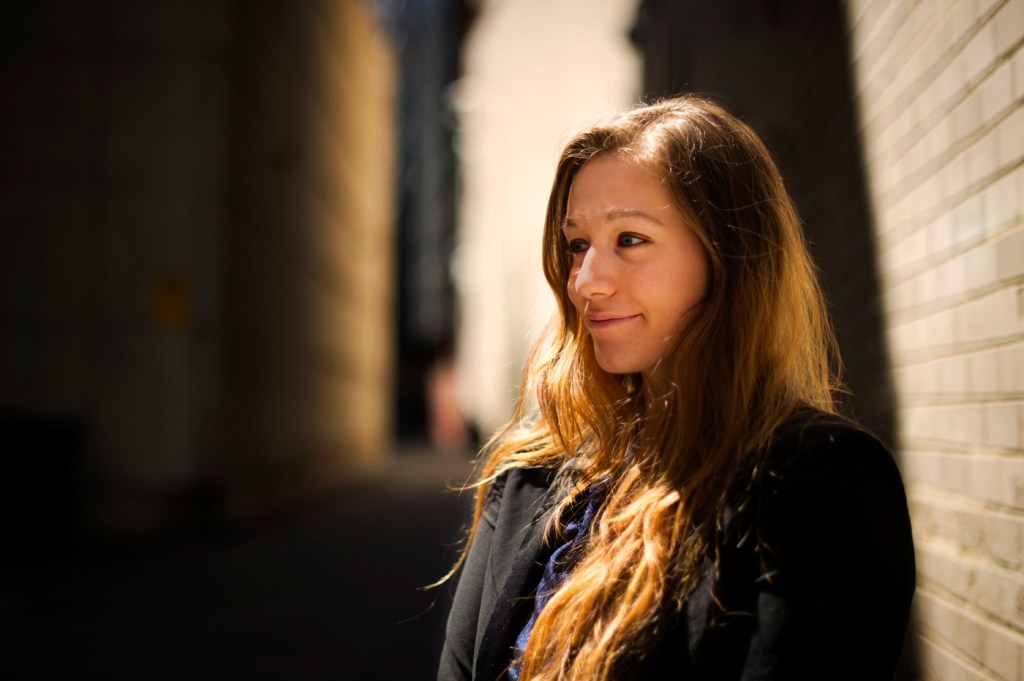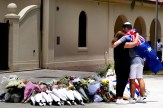Alumna’s Fulbright research abroad to focus on removing barriers to financial services

At Northeastern, Kelsey Burhans immersed herself in understanding Latin American culture and economics through the lens of microfinance and financial inclusion—experiences that included working and studying abroad in Argentina, Honduras, and Bolivia.
Burhans, who graduated in January with a bachelor’s degree in international affairs and economics, has received a prestigious Fulbright fellowship to continue this research.
In January, Burhans will begin her nine-month Fulbright project in Bolivia and then continue onto Peru. She will work closely with rural communities as well as microfinance organizations, banks, and mobile money operators in these countries to understand the common variables that support and inhibit progress toward expanding marginalized communities’ access to financial services.
Burhans explained that financial inclusion projects such as microcredit, community saving and lending groups, and mobile money have been successful in emerging markets in recent decades. While these services have proliferated to parts of the developing world including the Andean region of South America, she said success has been mixed. Her goals are to understand the root causes of success and failure and to share her findings and potential solutions with these organizations as well as other global stakeholders.
“I’m so excited to have the resources to execute this research, which I believe is so important,” said Burhans, SSH’16. “I would love to take my research and apply it in a meaningful way.”

Kelsey Burhans, SSH’16, in Boston in April 2016. Photo by Adam Glanzman/Northeastern University
Her Northeastern journey
Burhans’ first global learning experiences at Northeastern came in 2013. That summer, she participated in a Dialogue of Civilizations program to Argentina and Uruguay. But she actually got her first experience seeing microfinance in action earlier that year in February, when she spent two weeks in Honduras through Global Brigades, a student-led nonprofit health and sustainable development organization. She and other students from Northeastern and the College of Charleston conducted interviews with community members in the rural town of Pajarillos to assess their financial services needs and help establish a village banking structure.
Burhans followed up that experience with a co-op in Bolivia at Fundación Progreso in the summer of 2014. She focused primarily on conducting economic development research aimed at identifying avenues to bring better energy and lighting systems to rural communities throughout the country. She was a part of a team that interviewed people in several communities about both challenges and solutions, which she found particularly valuable. For example, she recalled how people in one community in the Amazon reacted to solar energy with skepticism, noting that heavy rainfall and the dusty terrain would inhibit the impact of solar panels.
“I’m so excited to have the resources to execute this research, which I believe is so important. I would love to take my research and apply it in a meaningful way.”
— Kelsey Burhans, SSH’16
Berhans spent her final co-op the following year at Cignifi Inc., a startup based in Cambridge, Massachusetts, that has developed a platform that translates mobile phone data into credit and marketing scores. This platform, she explained, serves as a financial inclusion solution for underserved communities lacking traditional credit histories, and as a business analyst she examined market readiness for Cignifi’s platform in Latin America and other parts of the world.
She said her co-op at Cignifi served as a primary driver toward her Fulbright application, and she plans to leverage the connections and experience she’s gained throughout her studies and global experiences at Northeastern to make the most of her Fulbright project.
“I’ll be focused on finding out what the pain points are to financial inclusion,” she said, “with the aim of drawing conclusions and hopefully finding some technologically motivated solutions that bring more access to financial inclusion initiatives.”





